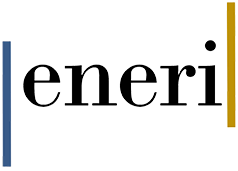Our research is divided into six work packages (WPs), led by different partners.
WP1 – Coordination and Management
WP 1 manages the project’s workflow and facilitates communication on all levels: Among the project participants, among the project and the European Commission as well as among the project and stakeholders and society as a whole. An important task is to ensure ENERI’s sustainability after the EC funding period.
WP2 – Research Ethics and Research Integrity, Shared Practice
WP 2 aims to strengthen and expand existing European networks on research ethics and research integrity. The main objectives are to integrate participants of all European countries, especially in those having no national or limited networking process among RECs and RIOs, to facilitate discussions, to share experiences and to raise ethical awareness besides training and education with regard to good practices of research. A first permanent REC-RIO working party will be established.
WP3 – Common ethical basis for research: Synergies between Research Ethics and Research Integrity Networks
WP 3 aims to identify comprehensive and overlapping issues in the fields of research ethics and research integrity and to devise accepted and workable principles for RE and RI. The main objectives are to identify the range of principles (procedural and substantive) that are available to RE and RI, to discuss these principles as they should apply in RRI with a wide range of stakeholders and to develop an “ENERI Concepts and Values in RE and RI Manual”.
WP4 – Training and Capacity Building: Research ethics and integrity
WP 4 aims to establish long-term effects for training initiatives for RECs and RIOs. The main objectives are to prepare a core curriculum and advanced training modules on research ethics and integrity, which are also applicable for other stakeholders. Furthermore, to compile existing training materials including database on relevant case studies on research ethics and integrity and to provide training for countries where infrastructural lacks in research ethics and integrity can be identified.
WP5 – The ResearchEthicsGate: Participation and Communication Portal: e-Community and e-Tools
WP 5 aims to develop and extend an e-Community in research ethics and research integrity. The main objectives are to set up an integrated website for research ethics and research integrity and to establish a database for experts in research ethics and research integrity with sustainable e-Tools integrated in SINAPSE to promote a better use of expertise.
WP6 – Monitoring and Certification
WP 6 aims to create an e-Community/Database of European and – whenever relevant – international experts in the different fields of research ethics and integrity, which should notably ensure the certification of the knowledge level of the experts. The main objectives are to explore and develop input, output and process indicators that are widely accepted in the heterogeneous field of research ethics and integrity representing expertise in the two areas to be implemented in the expert database. Furthermore, to evaluate the experiences gained with the validity and usability of the indicators and to adapt them accordingly.
